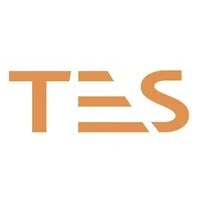PTS Personal Track Safety
Initial / Recert
Course Summary
The PTS course is comprised of two components.
There is an e-learning training package followed by a practical training day. Successful completion of the e-learning assessment is required prior to attendance on the practical training day.
This practical training module is designed to train persons who are responsible for undertaking Personal Track Safety training as part of their duties on Network Rail Infrastructure.
It is designed to develop a person’s knowledge, understanding and skills and is therefore particularly suited to persons required to prove their competence in these areas.
Course Aim
The aim of the course is to instruct delegates on correctly determining their responsibilities and duties when working on or near the line.
Pre-requisites & Requirements
Delegates must:
Must be a minimum age of 16.
Must meet the medical requirements of Network Rail Standard
NR/L2/OHS/00124 Competence Specific Fitness Medical Requirements.
Must meet the Drug and Alcohol requirements of Network Rail Standard NR/L2/OHS/00120 which
includes a valid D&A test uploaded to Sentinel no later than 12-weeks from the course date.
Must have successfully completed the e-learning training and assessment prior to attendance.
Must have sufficient command of English language, and of the English language as detailed in Network Rail Company Specification NR/L2/CTM/021 (Competence & Training in Track Safety).
Course Award
Delegates will be awarded with a Sentinel recognised certificate upon successful completion of this course.
Successful completion of the course will lead to the issue of a Network Rail Sentinel Track Safety Card, valid for two years. The card will be validated with PTS and also a green square (which signifies that the person must be accompanied at all times, as well as being required to wear a blue safety helmet).
Delegates who will be required to work in AC Overhead Lines areas will need to successfully complete the AC element of the course and have this added to their card.
Delegates who will be required to work in DC (“third rail”) electrified areas will need to successfully complete the additional one-day DCCR course and have this added to their card.
Additional Information
A PTS Keypoint booklet (RT9922) will be given to each candidate at the start of the course and a PTS Logbook (NR9968) will be issued to the candidate by the Trainer upon successful completion of the course. Provision of, and access to, the relevant Network Rail rulebooks and handbooks are the responsibility of the candidate’s Sponsor.
NOTE: The AC Electrification module is built into this course, but it is possible the candidate to pass the PTS module of the course but not pass the AC module. Should this occur and the delegate specifically requires a PTS (AC) then it is not possible to re-sit the AC as a stand-alone exam and the entire PTS Initial process has to be started again, including the e-learning module.
Why hold PTS Competency?
PTS (Personal Track Safety) is the absolute minimum and most fundamental competence required for any individual who needs to work on or near the operational railway in the UK. It is the essential starting point for a career in rail, providing individuals with the core knowledge and understanding needed to stay safe in a high-risk environment.
What is PTS?
PTS is a nationally recognised competence that certifies an individual has achieved a basic level of knowledge of railway safety. It confirms they understand the dangers of working on the railway (e.g., moving trains, electricity, trip hazards), know how to respond to warnings, and can move to a safe place when necessary. Holding a PTS card is a mandatory requirement for gaining access to Network Rail's operational infrastructure, allowing individuals to work under the supervision of a COSS (Controller of Site Safety) or other competent person.
Key Duties and Responsibilities of a PTS Holder:
While PTS doesn't grant authority to manage work or direct others, it places significant personal responsibility on the individual for their own safety and contribution to the team's safety. Their duties primarily focus on adherence and awareness:
Understanding and Following Instructions: Strictly obeying all instructions given by the COSS, Lookout, or other appointed Person In Charge regarding safety and work procedures.
Maintaining Personal Vigilance: Being constantly aware of their surroundings, particularly for approaching trains, and listening for warnings.
Knowing Positions of Safety: Identifying and being able to quickly move to a designated Position of Safety (a place clear of all lines) when warned of an approaching train.
Correct Use of PPE: Always wearing the mandatory Personal Protective Equipment (PPE) correctly (e.g., orange hi-visibility clothing, safety boots, hard hat, eye protection).
Understanding Warning Signals: Recognising and correctly reacting to audible (e.g., horn, whistle, shouts) and visual (e.g., flag) warning signals.
Reporting Unsafe Acts/Conditions: Promptly reporting any observed unsafe acts, conditions, or defects to the Person In Charge.
Fit for Work: Ensuring they are medically fit and not under the influence of anything that could impair their ability to work safely.
Where PTS is relevant within TES:
The PTS competence is universally required for virtually all operational and many non-operational roles at TES that involve working on or near the railway line. It's the foundational entry requirement for:
All Trackside Operatives: Including Permanent Way (P-Way), Electrification (OLE/3rd Rail), Signalling, and Civil engineering teams.
Supervisory & Management Roles: All individuals in leadership positions who need to visit sites regularly.
Technical Specialists & Surveyors: Those conducting inspections, surveys, or fault-finding.
Apprentices & New Entrants: It's the essential first railway-specific safety competence.
Support Staff: Even roles like Possession Support or Site Warden require PTS to access the track environment.
Let’s Learn Together
Interested in our NSAR Gold Standard team training your staff?
Fill out some info and we will be in touch shortly!
We can't wait to hear from you!
Explore more of TES
Want to explore more of what TES have to offer? Use the search function below

